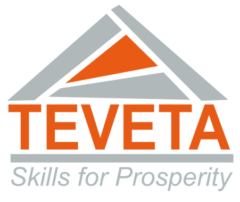The Technical, Entrepreneurial and Vocational Education and Training (TEVET) Authority is a regulatory body that was established in 1999 by an Act of Parliament with the mandate to regulate, promote and facilitate sustainable provision of quality technical, entrepreneurial and vocational education and training in Malawi. Both TEVET Authority’s Policy and Act support implementation of informal skills development initiatives that promote wage and self-employment through the acquisition of TEVET.
The informal sector in Malawi covers a spectrum of economic activities in commerce, agriculture, construction, transportation and service provision. It absorbs more than 80% of the labor force in both the rural and urban areas. In order to increase access and equity, the TEVET Authority strives to develop quality skills training that equip the youth and other disadvantaged groups with skills that will enable them become employable through Informal Training Programmes.
These skills development training programmes are demand driven and are based on training needs assessment before implementation. They generally operate on a cost sharing basis.
TEVET Authority works with Informal TEVET providers who have to undergo registration to ensure adherence to prescribed standards.
The Informal Skills Development Programme aims at improving the standards of technical, entrepreneurial and vocational education and training of people living and working in the country’s informal sector.
TEVET Authority promotes the adoption of appropriate technologies in TEVET to enhance effectiveness and efficiency in various informal skills development initiatives.
Informal Skills Development Programmes offer various training opportunities under the following initiatives:
- Skills Development Initiatives
This refers to short term training programmes aimed at imparting or improving skills to small and micro entrepreneurs as well as out of school youth, women and other community members.
- Skills Training in collaboration with Partners
Skills Development with Partners are technical, entrepreneurial and life skills training initiatives implemented in collaboration with partners such as Non-Governmental Organisations (NGOs), International Non-Governmental Organisations (INGOs), Community Based Organisations (CBOs) and Faith Based Organisations (FBOs). Skills Training in collaboration with parners aims at working with other organisations in the provision of TEVET to the rural, urban and peri-urban areas. TEVET Authority and the partner institution enter into an MoU where the Authority promotes, facilitates and regulates quality provision of TEVET within the partner’s catchment area.
- Micro and Small Enterprise Development (MSED) Initiatives
Micro and Small Enterprise Development (MSED) interventions aim at developing entrepreneurial, business and technical skills in existing community based micro and small enterprise groups formed by various Governmental and Non-governmental agencies in the rural, urban and peri-urban areas.
- Informal Apprenticeship/On-the-Job Training (IA/OJT)
Informal Apprenticeship training involves the transfer of knowledge and skills from a Master Craftsperson to an apprentice taking place on the job within an enterprise or workplace. IA/OJT aims at providing hands on training that allows an apprentice to learn technical as well as business skills from the Authority’s registered Master Craft’s person.
- Community Skills Development Centres (CSDC)
Community Skills Development Centres (CSDC) are TEVET Authority listed community owned institutions with specified infrastructure that provide TEVET and are recognised by the local assembly. CSDCs aim to provide TEVET at a local informal TEVET institution focusing on training that is relevant to the locality with a view to promote self-employment and economic empowerment of the local masses.
Individuals, organisations and small business groups in both rural, urban and peri-urban areas are encouraged to demand training opportunities from the TEVET Authority through its service centres or District TEVET Desk Officers. To ensure equitable access to TEVET, the TEVET Authority works with all district and city assemblies alongside Informal Sector TEVET Provider Association (ISTPAs) whose members are Master Craft’s Persons involved in Informal Apprenticeship provision.
- Unemployed individuals
- Out of school youth.
- Vulnerable,
- Master craftspersons
- Artisans
- Micro-entrepreneurs
- Traditional apprentices
Marginalized and disadvantages groups including women and orphans


